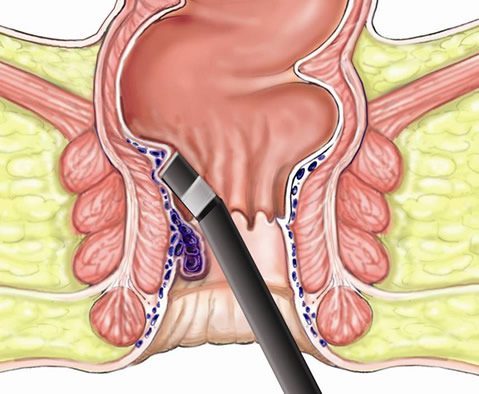The role of lasers in the treatment of hemorrhoids

Hemorrhoids are a common and sometimes painful condition that affects millions of people each year. The symptoms can range from minor to severe, but they're often caused by too much pressure on the veins in your rectum or anus.
There's a lot you can do to relieve the symptoms of hemorrhoids on your own, but if you want to keep them from coming back or getting worse, it's important to get treatment right away.
One treatment option is Laser Therapy for Hemorrhoids.
Here's what you need to know about how lasers work in this procedure.
How Lasers Work:
A laser uses intense light energy to burn away tissue in a controlled way while leaving healthy tissue alone. The beam of light is directed at the affected area, and as it passes through blood vessels, it heats up the vessels' walls and causes them to collapse and seal off bleeding points.
How It Works for Hemorrhoids:
Lasers for hemorrhoids work by sealing off bleeding points so that blood flow is reduced or stopped altogether. In addition to reducing discomfort from bleeding, this helps prevent infection by preventing contact between infected blood and healthy tissue.
Why It Matters:
Lasers are a less invasive treatment option for hemorrhoids, and they offer the potential for fewer side effects than surgery.
In addition, lasers can be used to treat hemorrhoids that do not respond to other treatments. This makes them an important tool in the fight against this common condition.
How Long Does It Take:
The entire procedure usually takes less than 30 minutes. Most people recover quickly from laser surgery for hemorrhoids and can return to their normal activities within a few days.
However, it is important to avoid straining or lifting heavy objects for at least two weeks so that the area can heal properly.
What to Expect:
Most people experience some pain following the procedure, but this can usually be controlled with over-the-counter painkillers.
Some people also experience itching or bleeding, which may indicate an infection. This is a very rare complication that can usually be treated with antibiotics.
Effectiveness:
Laser surgery for hemorrhoids is generally considered to be very effective.
In most cases, it eliminates the need for further treatment and provides relief from symptoms such as pain, bleeding, and itching.
Risks:
As with any type of surgery, there are some risks associated with laser surgery for hemorrhoids.
Possible risks include infection, bleeding, and damage to nearby tissues. However, these complications are rare and typically not serious.
Recovery:
Recovery from laser surgery is usually brief. You may experience some discomfort and bleeding for a few days after the procedure.
If your hemorrhoids were particularly large, you may need to use stool softeners or sitz baths for several days after surgery.
After about a week, most people can return to work and their normal activities.
Hemorrhoid treatments have come a long way in recent years. The development of lasers has made a big difference in the effectiveness of this type of surgery. Lasers can provide an alternative to traditional surgical procedures for the treatment of hemorrhoids.
Laser surgery is a less invasive and more effective alternative to traditional surgical procedures for the treatment of hemorrhoids.
This matters because it means that people who suffer from this condition can seek out laser surgery as an option with fewer risks and a quicker recovery time.


